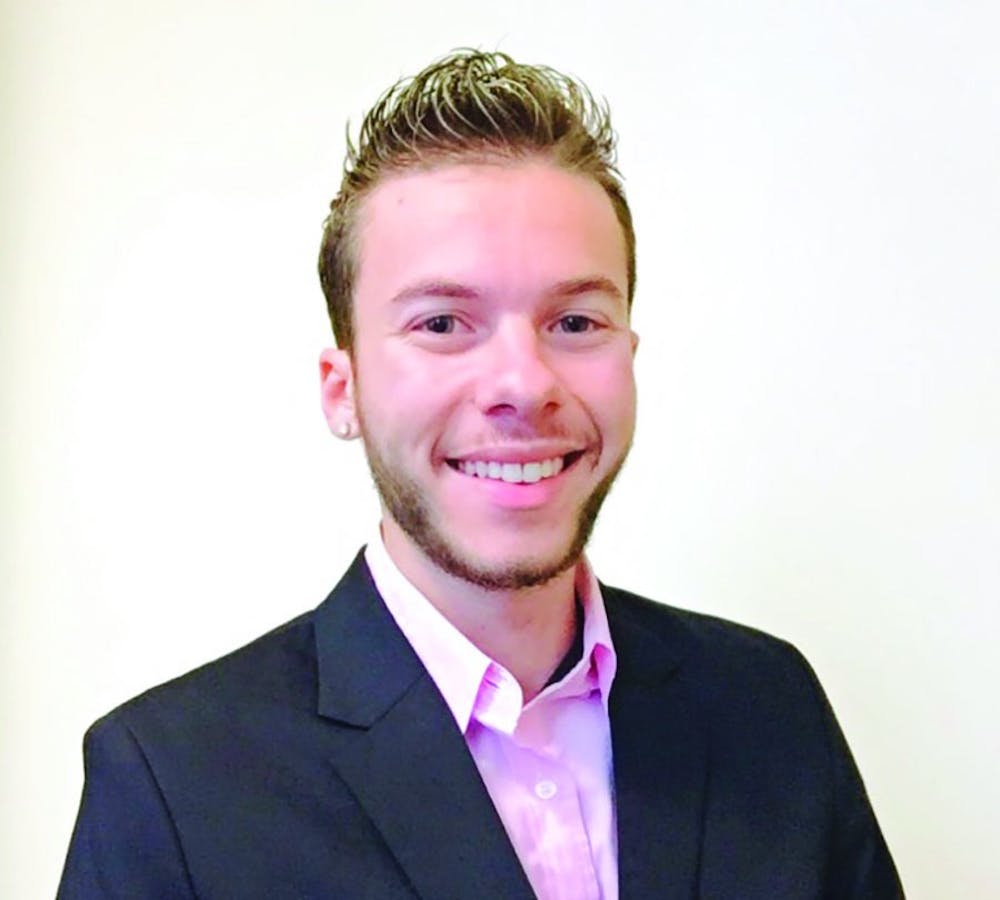Think back to being 18-years-old — receiving your college acceptance letter, dreaming about graduation, planning for prom.
Then you get cancer.
The earth keeps spinning, but suddenly, your life is at a standstill.
Shippensburg University junior Jason Greenspan, now 22, beat stage 2A testicular cancer, but he never let the memory leave him. Between pursuing a marketing degree and serving as vice president for SU’s Colleges Against Cancer, Greenspan manages his testicular cancer fundraiser.
STAMP OUT CANCER Now! sells wristbands and squish pennies through stampoutcancernow.com to benefit the LIVESTRONG Foundation. Greenspan got the idea to fundraise almost immediately after receiving his diagnosis. Before cancer, he conducted a fundraiser in high school for the Juvenile Diabetes Research Foundation, inspired by his cousin with diabetes.
“I really enjoyed it and I think I wanted to do something similar,” Greenspan said.
Testicular cancer, Greenspan learned, is the most common type of cancer in men between the ages of 15 and 34, according to the Testicular Cancer Foundation (TCF).
“It was just like, all right, so that’s my life — 18 years. Some people have 40 years, 50 years, 100 years; mine’s 18,” Greenspan said.
Although Greenspan was relieved to hear that testicular cancer is 99 percent curable if detected early, the words, “You have cancer,” still rang in his ears.
“Until I was cured I think I was still scared,” Greenspan said. “Even still today we’ll see like a little bump or something somewhere, like a freckle or something, and it’s like, oh is that cancer?”
After surgery, Greenspan learned the cancer had spread further than one testicle. The next step would be nine weeks of chemotherapy.
It is almost like getting a blood test, he said, but as the medicine did its work Greenspan would feel a chill creep over him. He wore a sweatshirt to keep warm for the three or four hours of each session.
“I didn’t like looking around at people so I would always put my hood over so I couldn’t see anything,” Greenspan said.
Greenspan’s mother, Wendi Schild, took three months off work to sit with him every day during chemotherapy. He and his mother have matching infinity tattoos. Greenspan’s grandmother had breast cancer and understood the pain her grandson felt.
Although his family’s support helped, it did not erase the pain.
“Whenever I came home from chemo I would either go on the couch or go lay in my bed and try and sleep ‘cause the only time my stomach didn’t hurt was when I was sleeping,” Greenspan said.
Each visit, the medical staff had to prick Greenspan with a needle to get him his medicine. His veins became so thin they had to prick him, four, five, six or even eight times. As much as each chemotherapy session hurt, Greenspan pushed through.
“I guess I’m just a stronger person than I realized at first,” Greenspan said.
With cancer behind him, Greenspan uses his story to raise awareness about the disease. He is an ambassador for TCF, speaks at Colleges Against Cancer events and hopes to share his message with young men at local high schools.
Greenspan believes education is imperative to defeating testicular cancer. Before his diagnosis, he did not know a single fact about the disease. He suspects many men are in the same situation he was in. Men can be ashamed to talk about testicles and the importance of self-exams, so they miss the opportunity to learn, he said.
“I think it’s because people are embarrassed. People can talk about breasts and breast cancer and stuff, but I think testicles are one of those things that you just don’t talk about,” Greenspan said. “You can talk about breasts, why can’t you talk about testicles?”
Greenspan visited Austin, Texas, last summer to see both the LIVESTRONG and TCF headquarters. TCF invited Greenspan to its speakers bureau to learn how to be an ambassador. Greenspan will be speaking at City Tap House in Philadelphia on Nov. 12 to raise money for TCF.
But each speech and each event can bring back painful memories.
“It can be tough at times, but I think the most important thing for me is spreading awareness about it, making sure everyone knows about it because it’s really not talked about that much,” Greenspan said.
When graduation comes around in December 2017, Greenspan plans to keep fundraising and educating. Ideally, he would graduate with a job offer to work for TCF or another cancer organization.
“When I leave I want to make sure people know about testicular cancer and why it’s so important to check yourself.”
For information about testicular cancer and monthly self-exams, visit testicularcancer.org.


The Slate welcomes thoughtful discussion on all of our stories, but please keep comments civil and on-topic. Read our full guidelines here.